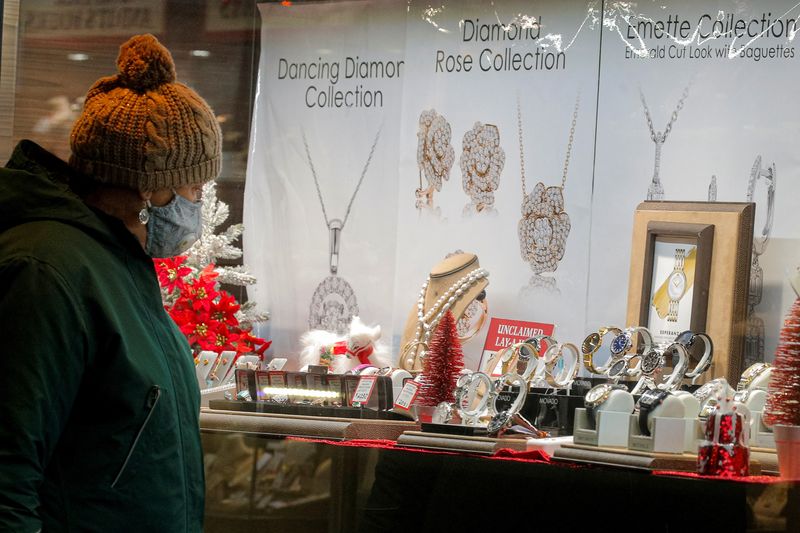By Katherine Masters
NEW YORK (Reuters) - A gulf in spending patterns between wealthy Americans and so-called "aspirational" shoppers is driving luxury retailers to search out new sources of revenue and, in some cases, to shift their merchandise strategies, several retailers said.
Jewelry company Signet , which owns brands including Kay, Jared and Zales, was the latest retailer to link lagging sales to a downturn in spending by so-called "aspirational" customers, who occasionally purchase goods priced between $300 and $800, but are more sensitive to the cost of essentials.
Signet noticed a sales decline in fashion jewelry priced below $5,000 in April, a trend that continued into June. Sales of items priced above $5,000, however, remained strong, Signet's Chief Financial Officer Joan Hilson said in an interview Friday.
Signet is expanding services to drive spending and is counting on more sales of warranty and protection plans for watches and jewelry, Hilson said. A protection plan for a $3,200 tennis bracelet at Kay, for example, adds $315 to the price.
Signet lowered its full-year revenue outlook on Thursday after the company flagged a “deteriorating” consumer environment.
'TAKING DOLLARS AWAY'
Retailers need to make up for the loss in sales due to falling demand from people who lack the means to regularly shell out on high-priced purchases.
“Inflation and food and other costs are taking dollars away" from the so-called aspirational shoppers, said Cowen and Company analyst Oliver Chen. Their desire to splurge in prior years represented a growth segment for luxury goods.
Macy’s noted a drop in sales was most pronounced at its namesake department store chain, where 85% of customers' households earn $150,000 a year or less, CEO Jeff Gennette said on June 1. Some customers at the company's Bloomingdale's unit, which draws a wealthier clientele, were also pressured by inflation, but "not at the same rate or intensity as Macy's (NYSE:M)," according to Gennette.
In recent weeks, both Ralph Lauren (NYSE:RL) and Capri, the owner of Versace, Michael Kors and Jimmy Choo, disclosed that they are doubling down on their highest-end consumers as sales from aspirational shoppers lag.
Ralph Lauren CEO Patrice Louvet said on May 31 the company had seen growth at full-price stores while outlet sales declined.
“In North America specifically, there is continued divergence between our core high-value consumers and that subset of more value-oriented consumers,” he said. The company is stocking up on core products including Oxford shirts, blazers and dresses, betting that luxury consumers will be drawn to staples that can outlast seasonal fashion trends.

Capri CEO John Idol told investors on May 25 it is pulling back inventory from department stores and other wholesale channels, which currently account for more than 20% of its sales. Idol said the company is able to sell at higher prices in its own stores than in department stores, where consumers seem resistant to recent price increases.
As part of its ongoing “elevation strategy” for brands, he said the company is phasing out Versace-branded tee-shirts, pool slides, sneakers and other items that are “not really going to drive a luxury customer perception."